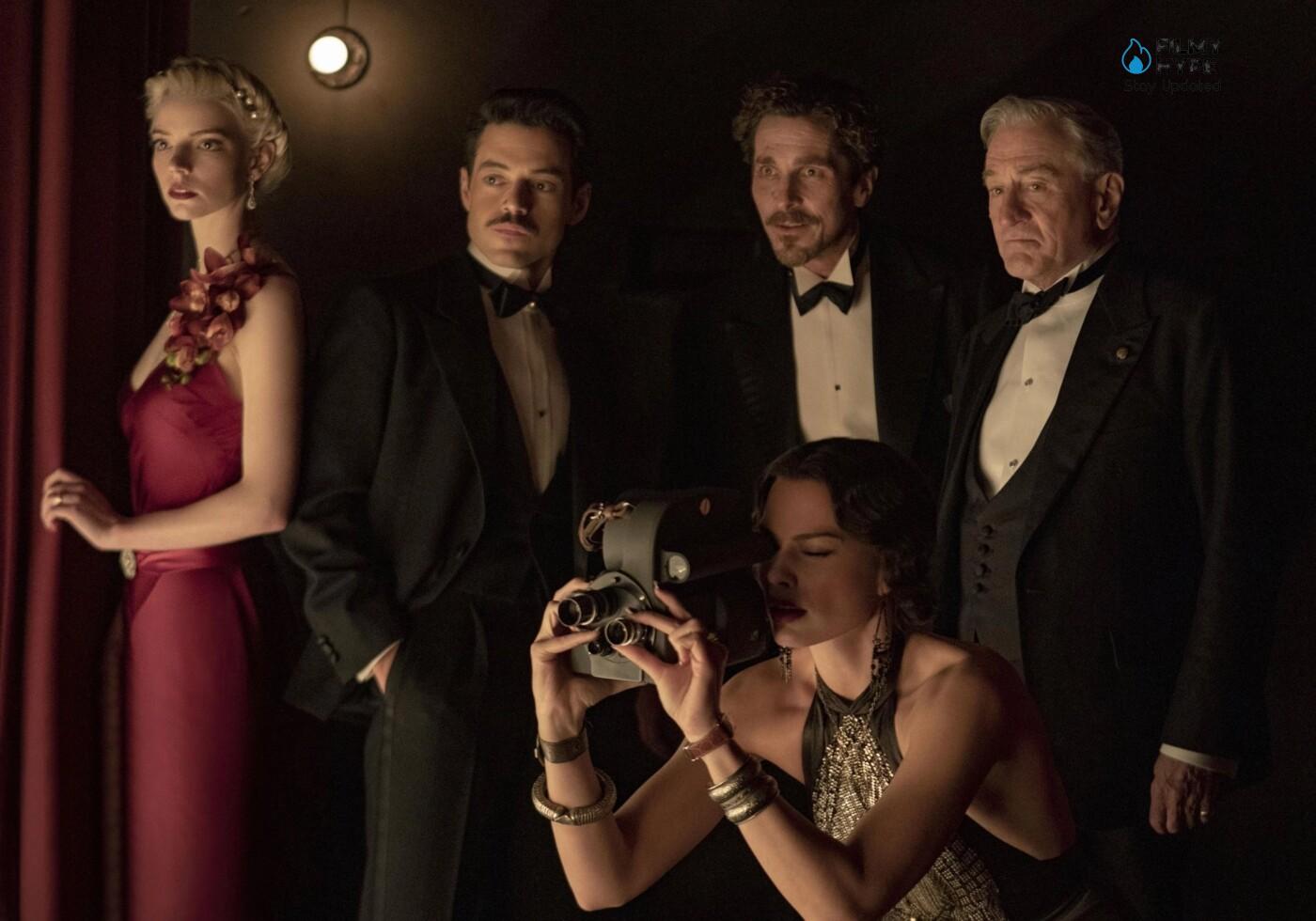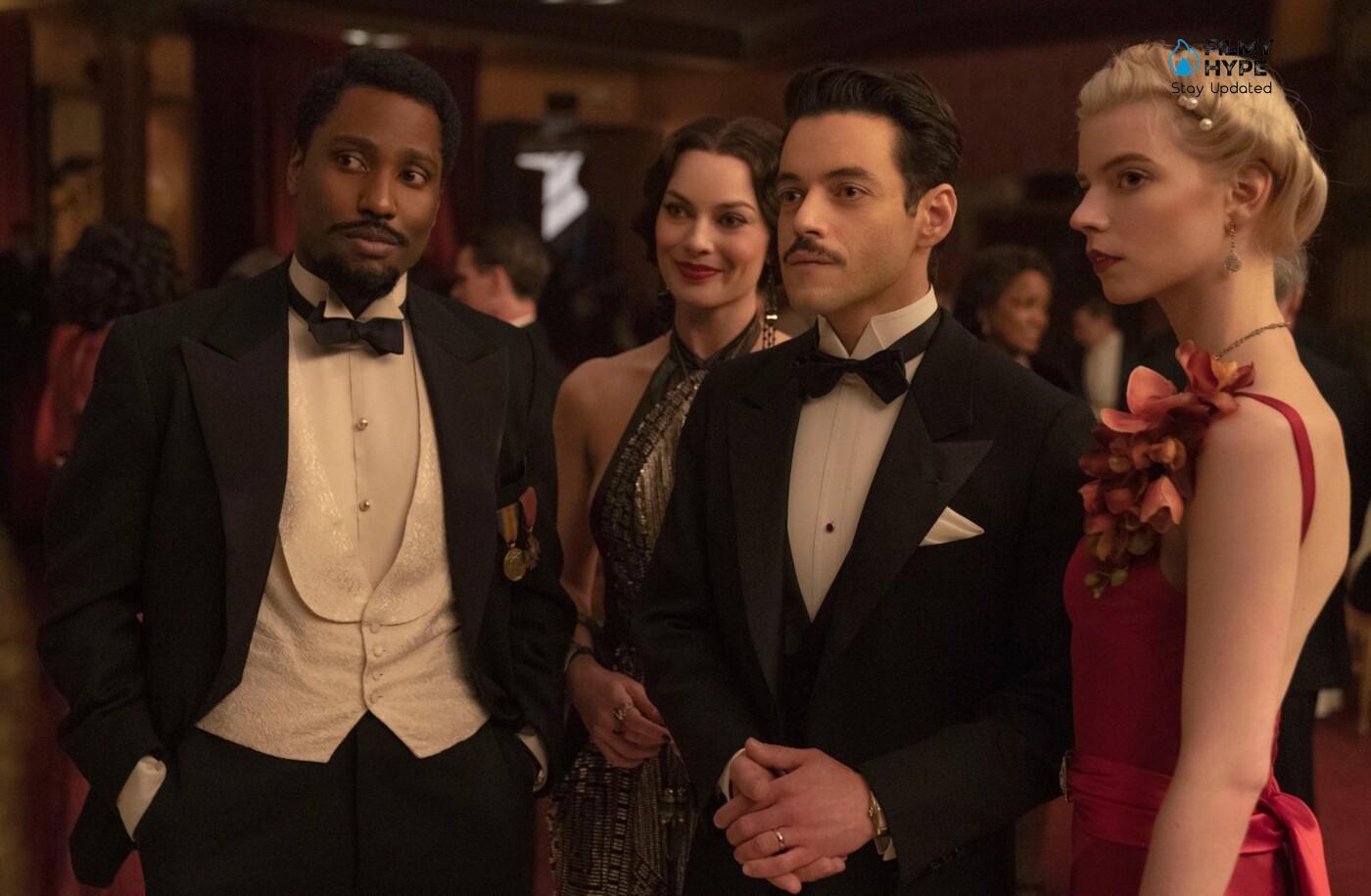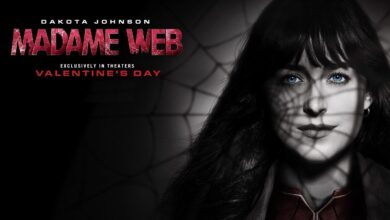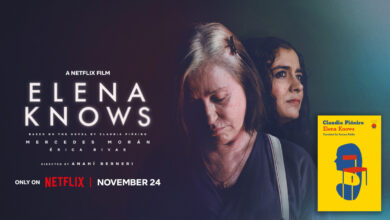Amsterdam Movie Review: Noir Shades, Between Casablanca and The Big Sleep
Cast: Christian Bale, Margot Robbie, John David Washington, Robert De Niro, Rami Malek, Anya Taylor-Joy, Taylor Swift
Director: David O. Russell
Filmyhype.com Ratings: 3/5 (three stars)
Christian Bale, Margot Robbie, Rami Malek, Anya Taylor-Joy and Taylor Swift: Amsterdam certainly has no shortage of stars to charm its audience with. The Bright Side and American Hustle director David O. Russell is a magnet for great performers who appeal to audiences, even now that his star seems to have faded a little. Amsterdam is probably his attempt to disprove those who consider him overrated and return to be talked about with a brilliant film and a very strong story. Unfortunately, the game fails him and indeed, from the very first opening scene, the film derails. There is nothing to save and it is a real disappointment, considering it was among the most anticipated films of the fall.

Inspired by real events, this somewhat grotesque comedy moves against the backdrop of the Great War, healing pain and loss in the slaughtered bodies of veterans; faces that resemble caricatures, cures that underline a lacerating experience which, by taking off the unfortunate limbs and pieces of skin, has automatically inserted them into a caste of inept post-conflict, a kind of sub-society ignored by the rest of the world, by those who did not have to face the trench. It is the history of war, the history of all wars and, in detail, the story of Dr. Burt Berendsen (Christian Bale), attorney Harold Woodsman (John David Washington) and nurse Valerie Voze (Margot Robbie). Their relationship follows Bertolucci’s dreamers a little and lets personal agreements and clashes stain their contours as if to underline the idea of a conflictual formation that goes beyond the battlefield to run aground in the life of individuals.
Amsterdam Movie Review: The Story
After being fellow soldiers during the First World War, Americans Burt Berendsen, played by Christian Bale (Russell’s fetish actor), and Harold Woodsman (John David Washington) decide to settle in Amsterdam together with nurse Valerie Voze, of whom Harold He is in love. Their happy coexistence is interrupted when both Burt and Harold decide to return to New York: the former opens a clinic for veterans, and the latter embarks on a legal career. Fifteen years later, however, Harold and Burt are drawn into a dark intrigue linked to the death of their former commander, the elderly Senator Bill Meekins: the autopsy conducted by Burt reveals that Meekins was poisoned, and immediately after the mystery thickens following another crime…
If the reference to a past reread according to the codes of myth and the suggestions of international intrigue refer directly to Casablanca, however, Amsterdam has far greater connections with another milestone interpreted a little later by Humphrey Bogart, namely the great sleep of Howard Hawks. Back behind the camera after a very long hiatus (his previous work, Joy, dates back to 2015), the director and screenwriter David O. Russell seems willing to try his hand at the canons of the hard-boiled genre, in particular from the narrative point of view: here, therefore, is that a couple of improvised detectives find themselves involved in a very intricate noir based on crimes, false leads, cover-up attempts and phantom plots.
Amsterdam Movie Review and Analysis
Amsterdam works admirably when showing its cinematic audiences as a wasteful and dynamic ode to criminal feature films, celebrating and enhancing the exciting and dangerous atmosphere of the 1930s thanks largely to the remarkable photography direction work of three-time Oscar winner Emmanuel Lubezki. Here the talented Mexican DOP carries out an interesting work on the illumination of the faces of its protagonists: from the war wounds and scars of the characters played by Bale and Washington to the porcelain skin of the diaphanous and beautiful Margot Robbie and Anya Taylor-Joy, Amsterdam is a film that knows how to make its protagonists interesting geography and psychology through the almost morbid attention to their faces.
Close-ups and close-ups, sudden plays of chiaroscuro light, ad hoc and effective make-up and hairstyles, the whole film by David O. Russell seems more interested in the faces and inner motifs of his countless and colourful characters than in the fascinating setting of the last century. After all, Amsterdam is nothing more than a daring escape of three fraternal friends from a murder charge with unpredictable and grotesque implications, and precisely because the premises were so promising that it is a real pity that the American filmmaker was not able to balance many of the tones, languages and ambitions of his new film.
Because on balance, the feeling is that the choice of the entire cast, protagonist and support, is more an excuse to stage a light and non-binding reunion of old and new friends in front of the camera, actors who perform their work with honesty and without enthusiasm in a limping system, the one staged by O. Russell, in principle essentially empty and an end in itself. And there would be nothing wrong with that were it not that Amsterdam would like to aim straight for the hearts and visceral emotions of its potential audience in the shoes of a captivating (Fanta) story full of admirable actors and twists, forgetting however that great cinema is not made with a single string of pompous names on a poster outside the cinema, nor with lame and unconvincing writing, which does nothing but stifle talent and good ideas in a sea of referentiality frankly maddening.

These are probably the reasons at the root of the cold reception given by critics to Russell’s new work and, above all, of his scorching public failure (not even fifteen million dollars collected at home, compared to the eighty million budget). A partly predictable failure for a film perhaps less ‘immediate’ than the director’s flagship titles, despite the parade of famous faces within the varied cast: from Rami Malek to Anya Taylor-Joy, from Michael Shannon to Chris Rock, from Mike Myers to Matthias Schoenaerts, passing through the pop star Taylor Swift (at the centre of the strangest “exit from the scene” of the year) and the stainless Robert De Niro in the role of former officer Gil Dillenbeck, modelled on the figure by General Smedley Butler. Amsterdam after all is inspired by a real story: the political conspiracy known as the Business Plot or the Wall Street putsch, an episode to be included in the strand of stranger-than-fiction stories.
Ultimately, Amsterdam assembles a listless and wasted first-rate cast to create an ambitious costume film that would like to be dynamic and compelling but that, packaged, presents itself to cinematic viewers as a nice tribute to American film capers and certain comics. of fantasy, however, devoid of bite and true interest. An unacceptable waste. Amsterdam, the new film written and directed by David O. Russell, sees the American author return to the control room since 2015 when he brought his Joy to the cinema. Here the director parodies the typical elements of the American caper movie by assembling a first-rate cast wasted and without artistic verve, for a film that would like to be dynamic and compelling but that fails in its ambition Such a pity.
Amsterdam Movie Review: The Last Words
Although the potential of such an absurd and surprising intertwining has not been exploited in the best way, the sonorous fiasco recorded by David O. Russell’s tenth feature film still appears somewhat ungenerous. It is true, sometimes Amsterdam creaks under the weight of its ambition, but certainly, there is no lack of reasons for interest in a project that is committed to re-reading certain formulas of classic cinema without resting on tradition but updating it according to the influences of contemporaneity and the very personal style of its author.







